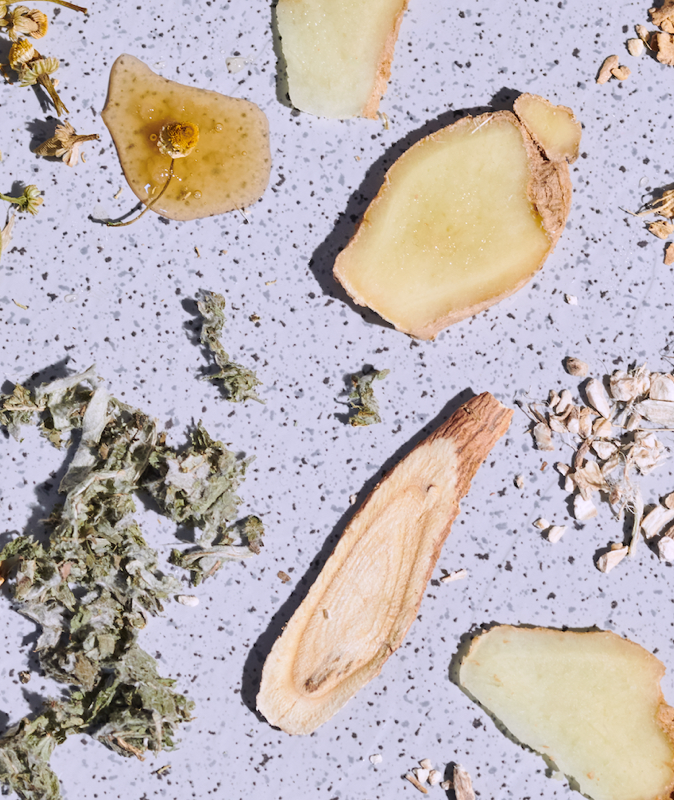
It was once wisely observed that the artichoke is a vegetable that you have “more of when you finish than when you start.” After all the work of peeling the leaves and breaking through the bristles that surround the core, you get to the tasty artichoke heart.
Yet many others have also noted that “it’s not about the destination, it’s about the journey.” In this case, that is the aphorism that applies, because while we all celebrate the heart of an artichoke, it is the leaves that host the most nutrients, providing a variety of health benefits.
So here we'll peel back the layers of this complex vegetable to understand its history, benefits and some of the scientific research that has been done to date.
The History
Artichoke, or Cynara scolymus, is a native plant to southern Europe, northern Africa, and the Canary Islands. Culturally, its appreciation stems from noble roots--cultivated in Florence in the 1400s, it was taken to France by Catherine de Médici. From there the French and Italians, along with the Spanish, established it as a staple of cuisine and culture. In the 1800s, European immigrants brought artichokes to the United States, and today, 99% of the US artichoke commercial crop is grown in California.
Artichoke is a member of the Asteraceae, or daisy, family. Extract from the nutrient dense leaves has a long medicinal history. It is thought to be one of the oldest used medicinal plants, as it is depicted in ancient Egyptian drawings and used by the ancient Greeks and Romans to aid in digestion.
Traditional Uses
The medicinal use of artichoke extends beyond digestion. Ancient Greek physicians, such as Dioscorides, recommended artichoke for liver health and to stimulate bile production. Similarly, Roman records indicate its use in managing various digestive complaints. Across the Mediterranean, artichoke leaf extract was traditionally brewed into teas or tinctures to address bloating, nausea, and poor appetite. This ancient wisdom continues to resonate in modern natural medicine, where artichoke is still revered for its wide-ranging health applications.
The Benefits
Artichoke leaf extract has been used for different purposes, including alcohol-induced hangovers, chronic albuminuria, hyperlipidemia, irritable bowel syndrome (IBS), jaundice, liver dysfunction, and even snake bites. While clinical research has validated some of these claims, the extract’s primary benefits focus on liver health, digestive support, and cholesterol management.
Liver Health
The liver plays a critical role in detoxifying the body, and artichoke leaf extract supports this process. The compound cynarin, found in high concentrations in artichoke leaves, is known for its hepatoprotective effects. It stimulates bile production, which not only aids digestion but also helps the liver eliminate toxins more efficiently. Bile is the digestive juice produced by the liver and stored in the gallbladder, that helps break down fats and remove waste products from the body. By enhancing bile flow, artichoke leaf extract may reduce the risk of gallstones and support overall liver function.
In traditional herbal medicine, artichoke is often recommended for individuals experiencing fatigue, jaundice, or other symptoms associated with a sluggish liver. Modern studies confirm that regular supplementation with artichoke leaf extract can improve markers of liver function, such as elevated liver enzymes.
Cholesterol Management
Artichoke’s benefits extend to cardiovascular health. The active compounds in the leaves, including cynarin and luteolin, have been shown to lower LDL ("bad") cholesterol while raising HDL ("good") cholesterol. This dual action helps to maintain a healthier lipid profile, reducing the risk of atherosclerosis and other cardiovascular conditions.
In one study conducted in 2000, participants who took artichoke leaf extract experienced a significant reduction in total cholesterol levels after 12 weeks. This finding aligns with artichoke’s traditional use as a heart tonic in Mediterranean folk medicine.
Digestive Support
For those who experience indigestion, bloating, or nausea, artichoke leaf extract can be a game-changer. By stimulating bile production, the extract aids in the breakdown of dietary fats, making it easier for the digestive system to process rich or fatty meals. This effect is particularly beneficial for individuals with dyspepsia, or chronic indigestion.
Artichoke’s high fiber content also contributes to improved gut health. The prebiotic fibers inulin and fructooligosaccharides (FOS) found in artichoke serve as food for beneficial gut bacteria, promoting a balanced microbiome. This can lead to improved bowel regularity and reduced symptoms of IBS.
Antioxidant Properties
Artichoke is rich in antioxidants, including quercetin, rutin, and gallic acid. These compounds help to neutralize free radicals, reducing oxidative stress and inflammation in the body. This antioxidant activity not only supports liver health but may also protect against chronic diseases, such as cancer, diabetes, and neurodegenerative conditions.
The flavonoids in artichoke leaves also contribute to its anti-inflammatory effects, which can benefit individuals with inflammatory conditions like arthritis or inflammatory bowel disease.
The Science
There has been scientific exploration to confirm and better understand the traditional medicinal uses of artichoke leaf extract in recent years.
Cynarin and Digestive Health
The high concentration of cynarin in artichokes helps with cholesterol management as well as digestive health, as Cynarin stimulates bile production, which helps to digest fats and with vitamin absorption from food. This was demonstrated in a 1994 study conducted with a randomised placebo-controlled double-blind cross-over pilot study with 20 participants.
IBS and Dyspepsia Relief
In a 2004 study at the University of Reading in the United Kingdom, 208 adults who experienced IBS and dyspepsia were observed as they regularly utilized artichoke leaf extract. The results demonstrated 26% reduction in the incidence of IBS among participants by the conclusion of the two-month trial. There was also a meaningful, self-reported improvement of bowel patterns. Additionally, dyspepsia symptoms decreased by 41% after treatment.
Gut Microbiome Balance
Artichoke’s prebiotic fibers play a key role in balancing gut flora. A 2010 double-blind, placebo controlled study with 32 adult participants over a 3 week period, demonstrates that the inulin from artichoke helped to balance gut flora, which could contribute to treating some of the symptoms of indigestion.
Cardiovascular Benefits
Research has also explored artichoke’s role in heart health. A 2006 meta-analysis examined the effects of artichoke leaf extract on cholesterol levels and found that it significantly reduced total cholesterol and LDL cholesterol. The active compounds in artichoke—including cynarin and chlorogenic acid—work by inhibiting the enzyme HMG-CoA reductase, which plays a key role in cholesterol synthesis.
Antioxidant and Anti-Inflammatory Effects
Artichoke’s antioxidant profile has been widely studied. In vitro research shows that its polyphenolic compounds scavenge free radicals and protect cells from oxidative damage. A 2015 study published in the Journal of Medicinal Food found that artichoke leaf extract reduced markers of inflammation in animal models, supporting its use in managing inflammatory diseases.
How to Incorporate Artichoke Leaf Extract
Artichoke leaf extract is available in various forms, including capsules, tablets, and liquid tinctures. When selecting a supplement, it is important to look for products standardized to contain a specific concentration of cynarin or other active compounds.
For those who prefer a more culinary approach, incorporating fresh artichokes into meals can also provide health benefits. Steaming or boiling artichokes helps to preserve their nutrient content, while the leaves can be peeled and consumed with dips or sauces. While fresh artichokes may not deliver the same concentrated benefits as extracts, they still offer valuable fiber, antioxidants, and vitamins.
Precautions
While artichoke leaf extract is generally considered safe, it is not suitable for everyone. Individuals with allergies to plants in the Asteraceae family, such as ragweed or daisies, should avoid it. Additionally, those with bile duct obstructions or gallstones should consult a healthcare provider before using artichoke supplements, as the increased bile production could exacerbate these conditions.
From ancient remedies to modern science, artichoke leaf extract continues to demonstrate its remarkable health benefits. Whether supporting liver function, aiding digestion, managing cholesterol, or promoting a healthy gut microbiome, this humble vegetable offers a powerful array of nutrients. By incorporating artichoke into your diet or supplement routine, you can enjoy both its culinary delights and medicinal properties.
Just as the journey to the artichoke heart is worth the effort, so too is the journey to better health with this versatile plant.
This information is for educational purposes only and should not be taken as medical advice. Please consult a physician before treating any disorder.




